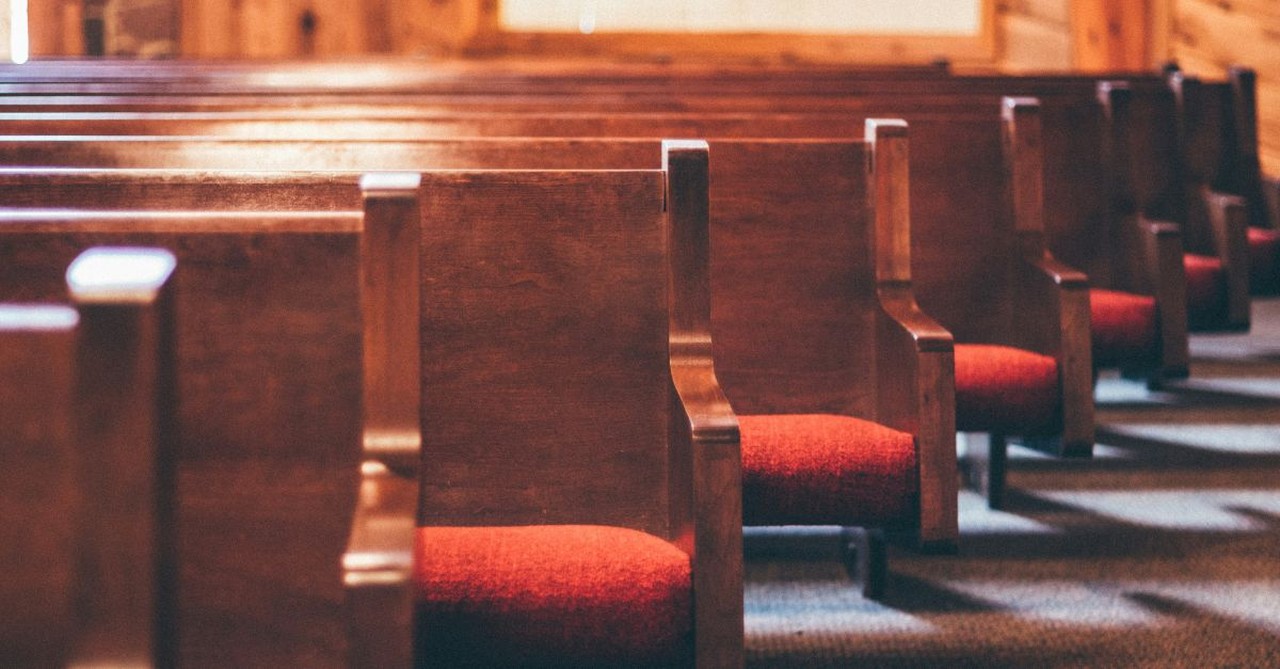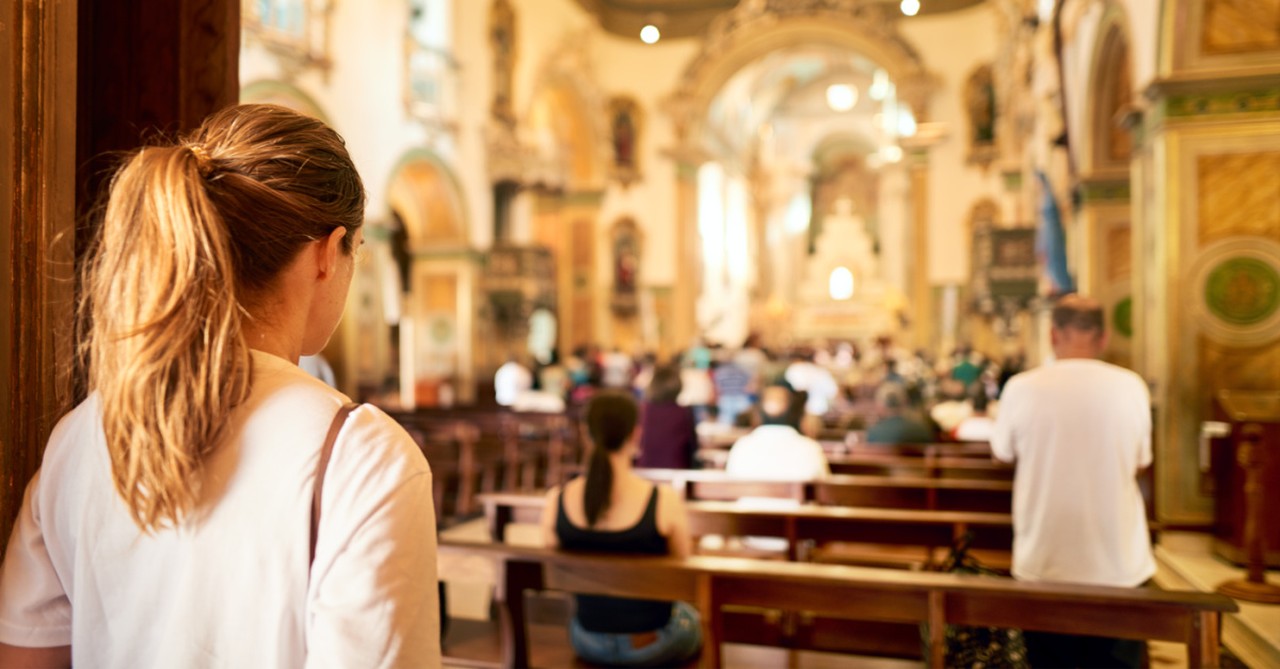5 Ways Satan Tries to Keep Us from Attending Church

“Remember the Sabbath day by keeping it holy. Six days you shall labor and do all your work, but the seventh day is a sabbath to the Lord your God. On it you shall not do any work, neither you, nor your son or daughter, nor your male or female servant, nor your animals, nor any foreigner residing in your towns. For in six days the Lord made the heavens and the earth, the sea, and all that is in them, but he rested on the seventh day. Therefore, the Lord blessed the Sabbath day and made it holy” (Exodus 20:8-11).
“I gave them my Sabbaths, as a sign between me and them, that they might know that I am the LORD who sanctifies them” (Ezekiel 20:12).
Satan’s main objective as God’s enemy is to work against God. He hates God, and he hates God’s people. Nothing delights Satan more than when he successfully tempts believers to disobey God’s statutes. The fourth commandment is no different. Satan is keenly aware that our participation in worship—singing and hearing the Word of God preached—is integral to our spiritual growth and to the building up the Body. He will stop at nothing to prevent that, including raising up obstacles and distractions, and even using our own selfish desires.
Photo Credit: ©Unsplash/ Andrew Seaman
Why Keeping the Sabbath Is Crucial

Why Keeping the Sabbath Is Crucial
SLIDE 1 OF 8
Keeping the Sabbath (“rest”) holy (“set apart”) means we treat this day—whether your denomination chooses Saturday or Sunday—separate from the rest of the work week. The concept of rest is God’s gift to us, modeled after his own example of resting after creating the earth, vegetation, animals, and humans for six days (Genesis 2:2-3). This one day is ours to use for physical, mental, emotional, and spiritual refreshment. By keeping (“guarding, preserving, protecting”) the Sabbath, we demonstrate our commitment and obedience to God and His statutes.
The Sabbath is also the one day God asks us to set aside to intentionally express reverence and honor him through worship.
Pastor John Piper says, “The beautiful thing about the sabbath is that God instituted it as a weekly reminder of two things. One is that all true blessing comes from his grace, not our labor. The other is that we hallow him and honor him and keep the day holy if we seek the fullness of his blessing by giving our special attention to him on that day.”
Photo Credit: ©GettyImages/petrenkod
The Sabbath as a Sign of Sanctity

The Sabbath as a Sign of Sanctity
SLIDE 2 OF 8
The Israelites were surrounded by pagan nations who worshipped foreign gods. Sadly, the Israelites were prone to follow suit. The Sabbath was to be different, though. It was a day to honor the Yahweh, “to the Lord your God.” It was a covenant sign between God and Israel, that among all the nations on earth, they alone were chosen to be his “treasured possession” (Deuteronomy 7:6). So sacred was this covenant that “anyone who desecrates it is to be put to death; those who do any work on that day must be cut off from their people” (Exodus 31:14b).
While we needn’t fear being put to death, keeping the Sabbath for believers today demonstrates that we are a distinct people among all other religions on earth. Reverential adherence to the Sabbath demonstrates that we are “a chosen people, a royal priesthood, a holy nation” because God “delivered us from the domain of darkness [sin] and transferred us to the kingdom of his beloved Son” (1 Peter 2:9; Colossians 1:14).
“The sabbath is a way of remembering and expressing the truth that God is our creator and deliverer and sanctifier,” says Piper. “He has indeed designed that we work. But our work neither creates, nor saves, nor sanctifies. For these, we depend on the blessing of God. All things are from him and through him and to him.”
And this angers Satan. Having previously tried to usurp God’s place and authority in heaven and failing, he is not above trying to do so on earth now by enticing God’s children to disobedience.
In the case of keeping the Sabbath holy, here’s how he tries to prevent believers from doing so.
Photo Credit: ©GettyImages/miwa_in_oz
1. Through Sports & Extracurricular Activities

1. Through Sports & Extracurricular Activities
SLIDE 3 OF 8
Drive by any athletic field or club on any given Sunday morning—whether it’s soccer, volleyball, football, gymnastics, or baseball—and you will see them packed with people. Kids are on the field or court, and parents are camped out in chairs and bleachers, coolers of snacks and drinks by their side.
Sundays have become another day for athletic clubs to host tournaments, and many Christian parents wrestle with the church vs. sports dilemma. As wonderful as sports are in teaching life lessons (i.e., teamwork, determination, overcoming obstacles), Satan, at the same time, uses sports to realign parents’ priorities for their children and to subsequently undermine young people’s spiritual growth.
In many denominations, however, Saturday evening services are a wonderful alternative. While perhaps less attended, these services still offer parents and their children a time of meaningful worship, solid preaching, and fellowship.
Photo Credit: ©Getty Images/Prostock-Studio
2. Through Work & Busyness

2. Through Work & Busyness
SLIDE 4 OF 8
Many people work on weekends, especially those in service industries. It’s not uncommon for them to be scheduled for an early shift at a retail store, a sporting venue, or a restaurant on a Sunday morning.
Then there are those who work long hours through the week—sometimes as much as 60-plus hours—and justify skipping church thusly: “Sunday’s my one day to sleep in.” They also see Sundays as their day to catch up on the things they couldn’t do during the week—grocery shopping, paying bills, cleaning the house, and yardwork.
Regardless of the reason, they sacrifice sacred time with God, his people, and their spiritual growth. For what? Extra money, an extra hour of sleep, that errand or chore that just couldn’t wait. Is it worth it?
Pastor Mike Mazzalongo says, “If we put ‘kingdom matters’ (like faithful attendance for example)—if we put things like this first, God will find a way to provide for us all the things we are so busy trying to provide for ourselves, and in doing so putting our souls at risk.”
Related Resource: Let’s Give Satan a Black Eye!
I just turned 25, and this year I am striking blows at the enemy! He can no longer taunt me with lies, shame, insecurity, and self-condemnation. Let’s run in freedom and fullness of joy together, shall we? Let’s give the enemy a black eye and discipline the flesh! Like what you hear? Subscribe to Bought + Beloved with Kirby Kelly on Apple or Spotify so you never miss an episode!
Photo Credit: Convertkit/Unsplash
3. Through Religious Self-Sufficiency

3. Through Religious Self-Sufficiency
SLIDE 5 OF 8
Ever heard this before: “I don’t need organized religion to be with God. I can just go outside and be in nature. That’s my ‘church’.”
While it’s true that God is omnipresent and we can be with him at any time, indoors or outdoors, Satan has convinced many that church—what they refer to as “organized religion”—is a crutch and isn’t necessary.
There is also the lie Satan sows, particularly with still-mobile senior saints, about “having heard it all before.” He says to them, “You’ve been in church since birth. You know the Bible backward and forwards. You know every hymn by heart. You don’t need church anymore. You can do church on your own at home.”
Both lies are deceptive. They convince people that they can “do church” on their own and in isolation. They deliberately distort the fact that God created us as communal creatures. We need each other. We need fellowship. We need accountability. We need love, grace, mercy, and encouragement, which comes with being in community with other believers. For these reasons, we are admonished not to “give up meeting together, as some are in the habit of doing” (Hebrews 10:25).
Photo Credit: ©Getty Images/Red Goldwing
4. Through Livestreaming

4. Through Livestreaming
SLIDE 6 OF 8
This might be one that we can blame on COVID-19. With the world basically shuttered during that time, churches scrambled to provide ways to keep their congregations connected. Livestreaming services and Zoom Bible studies became the go-to. People still heard the Word of God preached and still enjoyed some semblance of fellowship, albeit through technology.
Yet, when the world reopened, some people were anxious about returning to worship in person—and many had good reasons. But there were those (and still some today) that found livestreaming easy, convenient, and relaxed. A habit had been formed, and it was not so willingly relinquished. So, many remained at home, continuing to livestream from the comfort of their couches.
But they miss out on so much, notes GotQuestions.org. “Only through authentic relationships with other believers can we live out the faith we profess and become all that God has destined us to be—when we do not give up meeting together with other Christians.”
Photo Credit: ©Sparrowstock
5. Through Painful Past Experiences

5. Through Painful Past Experiences
SLIDE 7 OF 8
The church is filled with flawed (though redeemed) people, and they often say and do things that offend, whether intentionally or unintentionally. They can also be judgmental and clique-ish.
Those on the receiving end of any one of these injuries, however, often cite the hurt they experienced as their reason for not attending church. Satan continually reminds them that Christians can’t be trusted, that they are hypocrites, and don’t practice what they preach.
Jake Fellows on Quora articulates how many feel about the church these days. “They claim to preach love whilst simultaneously breeding hate. Religion has been a major cause of conflict and social injustices over the years. Homophobia? Promoted by religion. Gender inequality? Religion. Abortions? Yup. Slavery? They did that one too. Then there are the conflicts within the religions themselves: Catholics vs. Protestants, Sunnis vs. Shias. Can’t we all just get along?”
Yes, people have been hurt by those in the church—of all denominations—and some grievously so. There have been reported cases of molestation, embezzlement, lying, and adultery. We must acknowledge these injustices and injuries and confess them. Yet, the hurt done does not invalidate the truths of the Gospel and the Christian faith. They still stand firm, regardless of any damages done by the church and its people.
Anthony Ferrell gives an excellent analogy. “When we go to the doctor’s office, for example, whether or not the doctor has a kind bedside manner does not change the facts of the test results that he shares or the medicine he prescribes. His accurate analysis and prescription do not excuse bad bedside manners, but neither does his bad behavior invalidate his evaluation and report.”
Photo Credit: ©Getty Images/AJ Watt
Conclusion

Conclusion
SLIDE 8 OF 8
The more we miss church and avoid getting invested with its people, the more we miss out spiritually. In short, we sabotage our faith, true fellowship, and the blessings God has for us. By consistently avoiding church, we set ourselves up in isolation, which makes us extremely vulnerable to being “devoured” by Satan (1 Peter 5:8).
We must be on our guard, then, “so that we [will] not be outwitted by Satan; for we are not ignorant of his designs” (2 Corinthians 2:11). How?
1. Through knowing Satan’s schemes. His words and whispers are contrary to God’s words of love, grace, and peace. He tempts, threatens, and intimidates. He twists God’s Word to deceive and manipulate. He challenges our identity as a beloved and forgiven child of God. He offers tempting alternatives to get us to compromise our godly values and beliefs.
2. Through persistent prayer. Ask God to protect you from Satan’s schemes to distract and derail you with wrong priorities or to succumb to the pressures of this world.
3. Through uncompromising faithfulness. There will come days of testing. Satan has a plan for you, and it is to keep you from worshipping God within the safety of the Body of Christ. But make a firm commitment, for yourself and your family, to faithfully attend church, whether Saturday night or Sunday morning. By doing so, you won’t give Satan a foothold.
Photo Credit: ©Getty Images/PixelCatchers

Originally published October 23, 2025.






